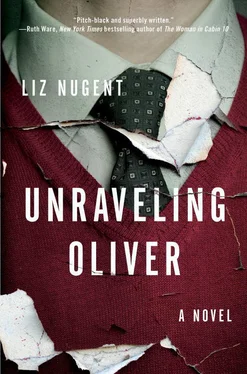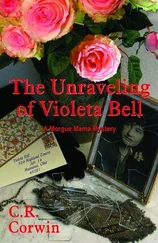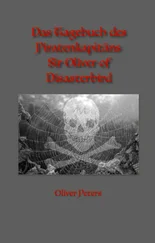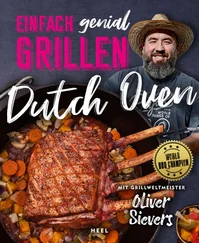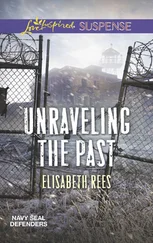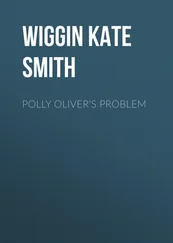One of my duties had been to summon the workers to lunch by ringing the bell in the tower of the disused chapel in one corner of the courtyard, and through the smoke I could see that side was unaffected by flames, so, roaring for help, I shouldered my way through the heavy wooden door and began heaving on the ancient rope until the bell was clanging frantically without rhythm in the chapel tower. The noise of the fire was loud now, cracking, spitting, groaning. I worried that there might be bedrooms directly above the salon, which was by now being consumed by a fierce and angry blaze. People began to appear out of the smoke, and all I could glimpse was a scene of chaos, confusion, and horror. I found Laura quickly, crying and clinging to an ashen-faced Oliver. I got a few of the lads to drag up the irrigation hoses from the field, but it took ages, and when they had unfurled them, it became clear they were fixed in position and didn’t stretch within ten yards of the fire. Several of the workers to my left were shouting and gesturing, trying to prize open the ancient stone lid of the disused well at the bottom of the terrace steps. Others were dragging a long-abandoned garden hose from the cave-like cellars underneath. Still others stood around, staring in shock. Then a creature appeared out of the flames, almost unrecognizable as human, but above the noise of the fire and the roars of instructions, I could hear a high-pitched woman’s voice screaming, not in the cut-glass, clean sound one hears from the archetypal heroine on TV, but an ugly, ugly shriek of yearning. I had never heard a sound like that before, and the thought of ever hearing it again fills me with dread. It was the sound of Madame’s loss, grief, and despair. Her entire body and whatever slight garment she was wearing were blackened, most of her long hair had burned away, and her head was smoldering. I grabbed her and held on tight as she tried to escape me and run into the gaping maw of the inferno, hoarsely screaming all the time, “Papa! Jean-Luc!” until she could scream no longer.
The entire east wing of the house was engulfed in flames which licked and grabbed at falling timbers, tiles, and masonry. Later I was to find out that the boy Jean-Luc often used to sleep in a cot bed in his grandad’s room on the second floor of that wing. I imagine it was an hour before the fire tenders came from the town, but time means little in the face of the elements; it’s an artificial construct that means nothing to the four winds. They pay no heed to ticking clocks. The firemen forced us back and finally took control. They were organized, and I admit that my reaction to their arrival was one of relief, although hope had been long vanquished by the flames.
There was nothing left of the east wing at the end of that night, bar the exterior walls. Through the flame-filled windows, I could see only the night sky and some collapsed roof beams. There was no hope for either of them. Poor Madame—her past and her future utterly wiped out in the unkindest way possible.
It was only after I had deposited Madame into the ambulance, completely broken and still convulsed by silent sobs, that I noticed Oliver was standing behind me, still, silent, his face a mask, his hands shaking as if independent of his wrists. He was in a state of shock.
Oliver’s name has been in the headlines in the papers here over the last month or two. I have refused to take part in any more media interviews. I cannot help but feel responsible for his attack on his wife. It is tragic, but every time his name is spoken, I automatically think first of the harvest of 1973, and I feel the pain as sharply as I felt it almost forty years ago.
One does not forget the worst time of one’s life, no matter how hard one tries. I have spent so many years wishing to change things. What if one had done this, what if one had done that… But the ache is still there. Time does not heal. It is a lie. One just gets used to the wound. There is nothing more.
But I must make sense of all this, before it slips through my fingers. One must go back to my father’s time to explain everything. One would want everything to be clear.
Papa was made old by la guerre , much older than his years. I was a small child at the time of the war and did not understand anything except that there was a constant stream of visitors to our estate for a certain period. I know now that they were Jewish families protected by my father from the Prefect of Bordeaux in the Vichy regime. It has since been revealed that this civil servant ordered the deportation of 1,690 Jews, including 223 children, from the Bordeaux region to the transit camp at Drancy, near Paris, and then on to death camps in the east.
It is impossible to believe that so many of my compatriots did nothing, but I think genocide happens every day in some part of the world and it is easier for us to pretend that it is not happening, easier to turn off the TV or skip that column in the newspaper.
My father was a hero, an intellectual, and a noble man. My mother’s death occurred shortly after the occupation, and he was heartbroken, but she had foreseen some of the horror that was to follow and she extracted a promise from my father that he would do everything in his power to protect our friends, no matter what their faith. We lived in very comfortable circumstances in a château handed down through seven generations of my father’s family. We produced good wines that were sold all over Europe and gave employment throughout the region. My father was less business orientated than my mother and struggled to keep a rein on things in her absence. He was too distracted and scandalized that the Vichy government could preside over such evil.
He invited several Jewish families to make their homes in the wine cellars underneath the terraced steps, particularly between 1942 and 1944, as the roundups intensified with the full participation of our own French authorities. Papa refused to stay quiet and made several representations to the secretary general to the Prefecture to no avail. So he took the law into his own hands and, using local informants, was able to preempt the official roundups with roundups of his own. My Tante Cecile was active in the Resistance movement in the city and, through a network of friends, managed to coordinate the rescue of many families targeted by the Gestapo. The families had to be kept out of sight, and even though we probably had the space for them in the château, Papa felt it was too risky. Our château was in a valley overlooked on two sides, so it was not possible for any of them to be outside during the daytime. If there was to be a sudden inspection, there must be no trace of them. So Papa set about turning the cellars into a more comfortable home. He knew he risked the business by doing this, as wine production would have to cease for the duration. He ordered oil lamps, blankets, books, and clothing through some friends in Valence so as not to arouse suspicion in the local village of Clochamps. He took delivery at night and, with trusted friends, created a temporary sanctuary for these families who had nowhere else to run, until a contact could be made to get them north, out of the country and across the border to Switzerland, where they were guaranteed to be free of persecution. As a child, it was tremendously exciting for me. A constant stream of new people coming and going. I was too young to notice their sorrow and desperation. Until then, I had been homeschooled, an only child, but Papa made sure that I knew the importance of keeping secrets when it was crucial to do so.
Despite all this activity, my father continued to make time for me, ensuring that I understood the world in a moral sense and that I knew that I would always come first in his life.
Читать дальше
